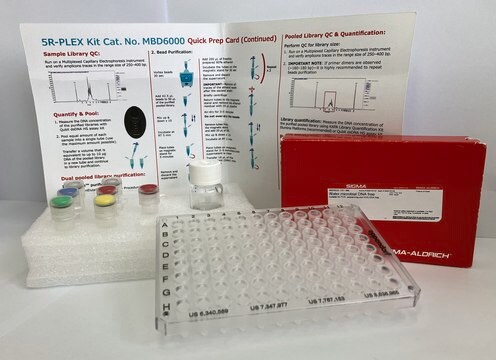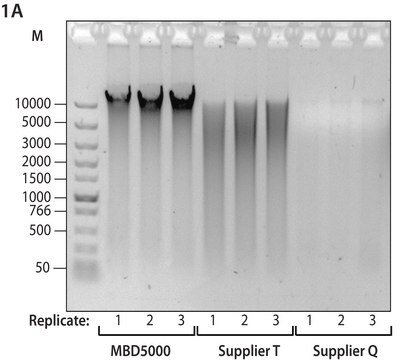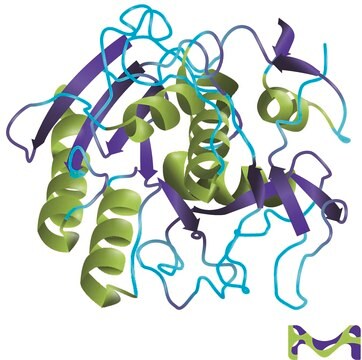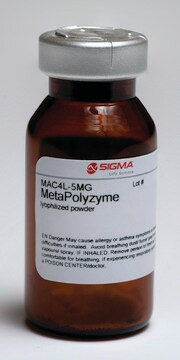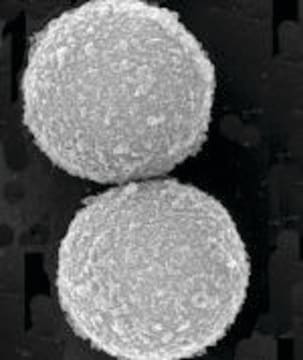MBD6009
5R-PLEX beads
for PCR purification
Synonym(s):
5R-PLEX SPRI beads
Sign Into View Organizational & Contract Pricing
All Photos(1)
About This Item
UNSPSC Code:
12352200
NACRES:
NA.55
Recommended Products
General description
Solid Phase Reversible Immobilization (SPRI) beads are magnetic beads that can be utilized for DNA purification and size selection. The 5R-PLEX beads are SPRI beads designed to easily separate the desired PCR amplicon from nucleotides, adapters, primers, and primer dimers by efficient purification and size selection. The magnetic beads are provided in a ready to use suspension that enables fast and efficient application even in high throughput applications with automated liquid handling. The beads are formulated with NaCl and high purity PEG as the crowding agent.
Application
- NGS library preparation, including 16S and 18S
- Approved to use in ultrasensitive 5R-Plex (SMURF) library preparation(2,3,4) for degraded samples
- PCR reaction clean up
- Amplicon size selection
- DNA purification and manipulation (replacing elution buffer, concentrating the sample)
Features and Benefits
- Ready to use
- Compatible with automated liquid handling
- Easy size selection by changing the volumetric ratio of beads to samples
Storage Class
10 - Combustible liquids
wgk_germany
WGK 1
Certificates of Analysis (COA)
Search for Certificates of Analysis (COA) by entering the products Lot/Batch Number. Lot and Batch Numbers can be found on a product’s label following the words ‘Lot’ or ‘Batch’.
Already Own This Product?
Find documentation for the products that you have recently purchased in the Document Library.
Lishay Parhi et al.
Nature communications, 11(1), 3259-3259 (2020-06-28)
Fusobacterium nucleatum is an oral anaerobe recently found to be prevalent in human colorectal cancer (CRC) where it is associated with poor treatment outcome. In mice, hematogenous F. nucleatum can colonize CRC tissue using its lectin Fap2, which attaches to
Our team of scientists has experience in all areas of research including Life Science, Material Science, Chemical Synthesis, Chromatography, Analytical and many others.
Contact Technical Service